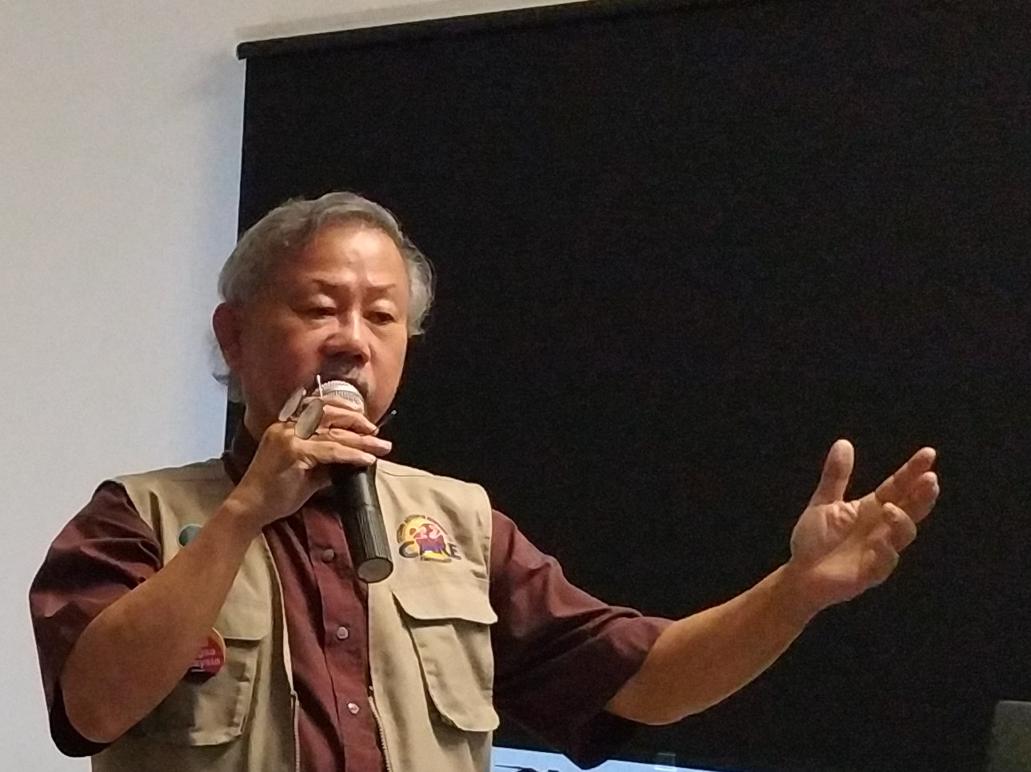KUALA LUMPUR, Nov 29 — A doctors’ group today urged the health minister to withdraw proposed legal amendments that prohibited doctors from refusing patients’ prescription requests, pending discussion with stakeholders.
The Federation of Private Medical Practitioners’ Association Malaysia (FPMPAM) said the “supply” of medicines as regulated by the Poisons Act 1952 excluded doctors’ administration of treatments, questioning how “decline to issue a prescription upon request” was defined in the Poisons Act (Amendment) 2019 Bill.
“If a request is unreasonable and illegal, doctors have every right to decline the request,” FPMPAM president Dr Steven Chow said in a statement.
“Doctors are also regularly confronted by patients demanding for hypnotic drugs. What if the patient demands for a prescription for an abortion drug? How would this proposed law designed to deal with this?”
CodeBlue reported that Health Minister Dzulkefly Ahmad tabled the Poisons (Amendment) 2019 Bill for first reading in Parliament last Monday that sought to criminalise doctors’ rejection of their patients’ prescription requests.
The new Bill, if passed, will make it mandatory for doctors, dentists, and vets to provide prescriptions upon request from patients, failing which they will be guilty of an offence that is punishable by a maximum RM50,000 fine, up to five years’ imprisonment, or both.
FPMPAM, which represents doctors in private practice in Malaysia, said the Poisons Act was not the appropriate law to govern the practice of medicine that is regulated by the Medical Act 1971, which it said had sufficient provisions on doctors’ prescription practice.
Any infringement will subject doctors to disciplinary action by the Malaysian Medical Council (MMC) that regulates medical practice in Malaysia.
Dr Chow told Dzulkefly to produce evidence of widespread non-compliance by doctors in issuing prescriptions that necessitated such “high-handed” action.
“We know of no serious discussion of this matter by the Minister with the Malaysian Medical Council or with the relevant medical bodies.
“Furthermore, we know of no country in the world that has such a law criminalising the mere act of ‘refusal to provide a prescription slip’.”
Dr Steven Chow, president of the Federation of Private Medical Practitioners’ Association Malaysia
FPMPAM said the public could choose to patronise clinics that prescribe and dispense medicines or visit facilities whose doctors only provide consultations and issue prescriptions if treatments are needed.
“There is also no law to compel anyone to see or continue to seek care from any doctor who do not provide prescriptions if requested,” Dr Chow said.
“The Minister should respect that the practice of medicine is already regulated by the Medical Act and the doctor-patient relationship is a social contract based on mutual trust.
“Micromanaging of this by introducing unnecessary regulations and laws promotes a toxic and untenable environment that will be detrimental to the provision of good medical care.”

The Medical Practitioners Coalition Association of Malaysia (MPCAM) also slammed the Poisons Act amendment Bill.
“So what happens if patients do not require the medication but insist the doctor gives a prescription? And if the doctor doesn’t give a prescription for drugs not needed like sleeping tablets, antibiotics etc, can the doctor still go to jail?” MPCAM president Dr Raj Kumar Maharajah said in a statement.
“Or will the Minister be held responsible for adverse reaction and go to jail? Others who dispense medication without prescriptions must also face a jail sentence — from pharmacies.”
Dr Raj Kumar said it was the MMC’s duty to haul up doctors who refuse to give prescriptions to patients.
“They produce so many doctors, now don’t know where to send the excess doctors, so decided to send some to jail,” he said.
“All these are happening under the watch of our Director General of Health, who is also the president of the Malaysian Medical Council which is supposedly the guardian of the medical fraternity. I wonder if this latest criminalisation move on registered medical practitioners via the intricate diabolical moves of the people behind the failed Pharmacy Bill has got his blessings.”
Correction note: The Poisons (Amendment) 2019 Bill enhanced the punishment for offences against the Poisons Act from maximum one-year’s jail, a fine not exceeding RM3,000, or both to maximum five-years’ jail, a fine not exceeding RM50,000, or both. Under the Bill, declining to issue prescriptions upon patients’ request is defined as an offence against the Act. The article has since been corrected to reflect the new proposed punishments.








